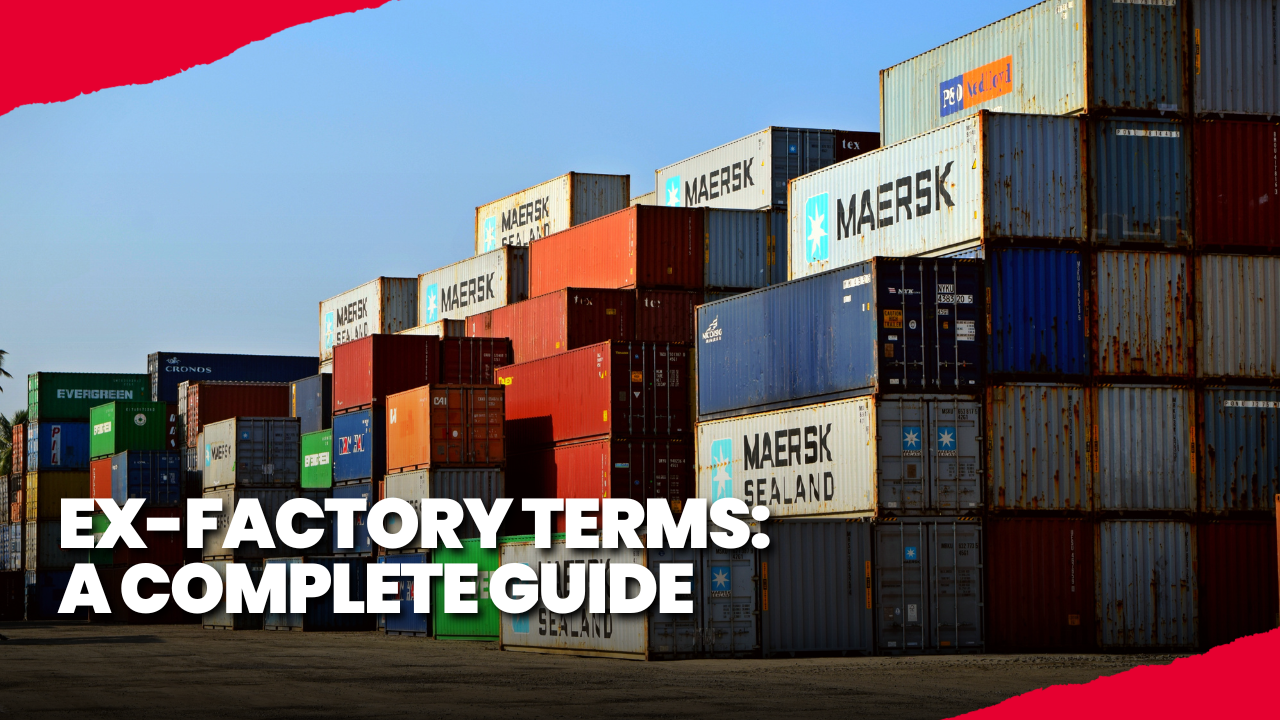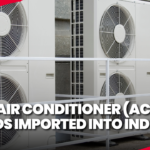
If you want to import or export goods successfully, you must be familiar with ex-factory terminology. Alternatively known as “ex-works,” these terms are a part of the International Commercial Terms (Incoterms) that are used around the world to spell out what customers and sellers are responsible for and how much it will cost them.
Definition of “Ex-Factory Terms”
As the terms “ex-factory” or “ex-works” suggest, the seller makes the goods available for pick-up at their plant or warehouse. After this point, the buyer is in charge of all costs and risks linked to getting the goods to their final destination. This includes moving the goods, taking care of the customs process, and setting up delivery.
Duties under Ex-Factory Terms:
Core Seller Duties
- Make things available where they are.
- Make sure the things are ready to be picked up.
- Provide the buyer with the appropriate paperwork.
Buyer’s Duties
- Set up and pay for transportation.
- Clear customs and pay for the costs that come with it.
- Take on all costs and risks once the things leave the seller’s property.
What is the Ex-Factory Price
The ex-factory price tells you how much the things cost where the seller is. The customer accepts this price and agrees to handle the shipping process. The following is not involved.
- Pre-carriage (transportation from the seller’s premises to the main carrier)
- On-carriage (transportation from the primary carrier to the final destination)
- Loading costs onto the collecting vehicle
- Import and export duties
- Customs clearance costs
How Ex-Factory Terms Work
When a buyer agrees to ex-works terms, they undertake all shipping costs from the seller’s factory to the final destination.
- Loading goods onto the truck at the seller’s premises
- Transporting goods to the port or airport
- Handling all customs procedures
- Unloading goods at the destination
- Final delivery to the buyer’s location
- The buyer typically appoints a shipping and freight forwarding company to manage the logistics and ensure the goods are insured during transit.
What are the benefits of Ex-Factory Terms?
- All costs associated with importing items are clearly visible to the buyer.
- The seller’s hidden fees or excessive charges are eliminated.
- The buyer can choose which shipping and freight transfer service they want to use.
- Save money by negotiating better shipping rates.
Cons of Ex-Factory Terms
- The buyer has to handle the complicated and time-consuming customs steps at the origin.
- When sellers provide incorrect paperwork, it can cause extra costs and delays.
- As soon as the things leave the seller’s property, the buyer takes on all the risks.
- They are responsible for any damage or loss that happens during shipping.
Also Read This: Port of Discharge vs. Place of Delivery: Key Differences Explained
When to Choose Ex-Factory Terms
Buyers who have a reliable logistics team or third-party shipping business can benefit from ex-factory terms. They’re perfect for buyers who want to see and control the shipping process. However, buyers should be ready to deal with the problems and risks that come with shipping and clearing customs.
How to Use “Ex-Factory” in Real Life
Think about a New York City business that gets its gadgets made in Taiwan and ship them to you. When a New York corporation agrees to ex-factory terms, it means that the Taiwanese plant will be responsible for collecting the goods and delivering them to their New York warehouse. Their prices are easy to see, but they’re also responsible for handling shipping and customs clearance, and they’re the ones who have to pay if anything becomes damaged in transit.
Wrapping It Up
When you trade goods with other countries, ex-factory terms make it easy for both parties to know what their roles are. When buyers understand these terms, they can make smart choices that make the import-export process go smoothly and affordably.
FAQs
The ex-factory price only includes how much the things cost at the seller’s place of business. It doesn’t cover the costs of shipping, customs, or security.
The buyer is responsible for all costs and risks related to getting the goods from the seller’s place to the end destination.
From the seller’s place of business to the delivery point, it is up to the buyer to arrange transportation, clear customs, and take care of all risks and costs that come with it. Businesses can better handle the complicated world of foreign trade if they understand the ins and outs of ex-factory terms. This makes transactions go more smoothly and keeps costs from popping up out of nowhere.
Also Checkout Our YouTube Channel: @limeinstituteofexportimport






